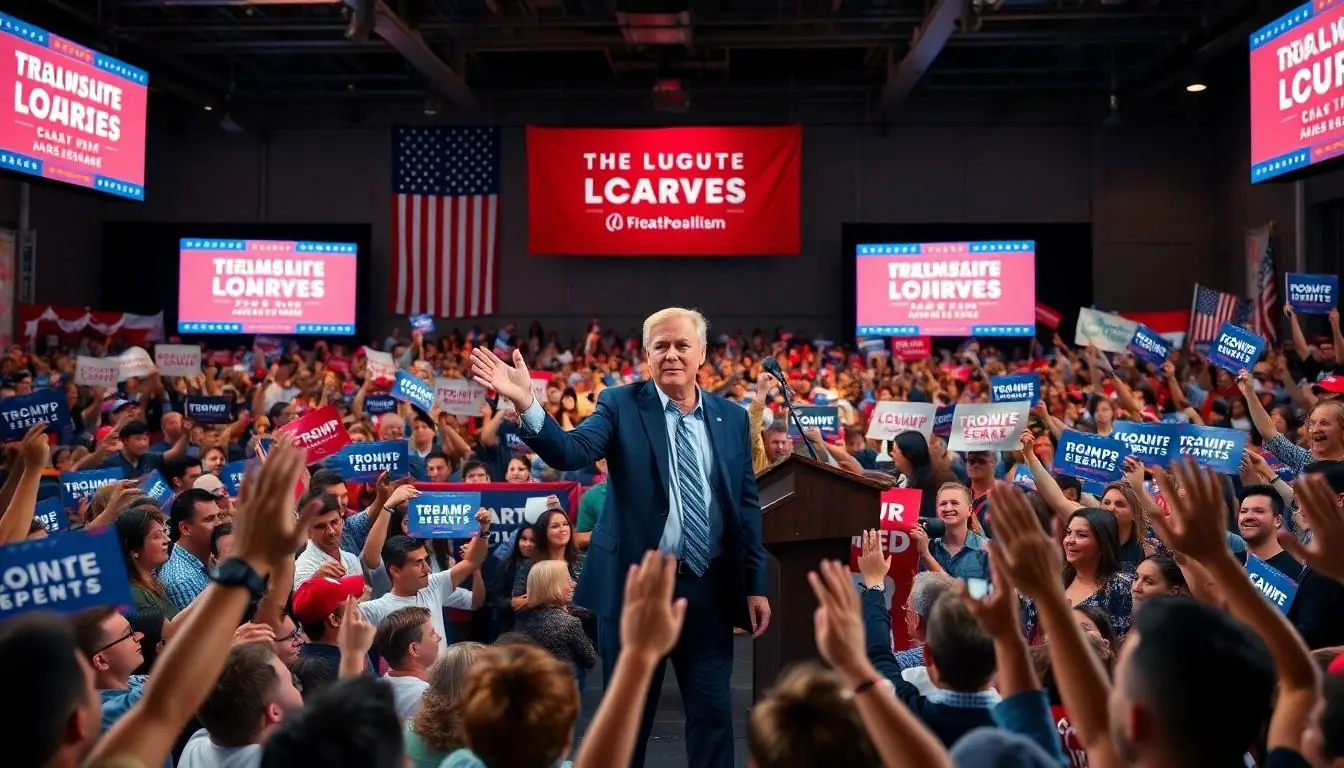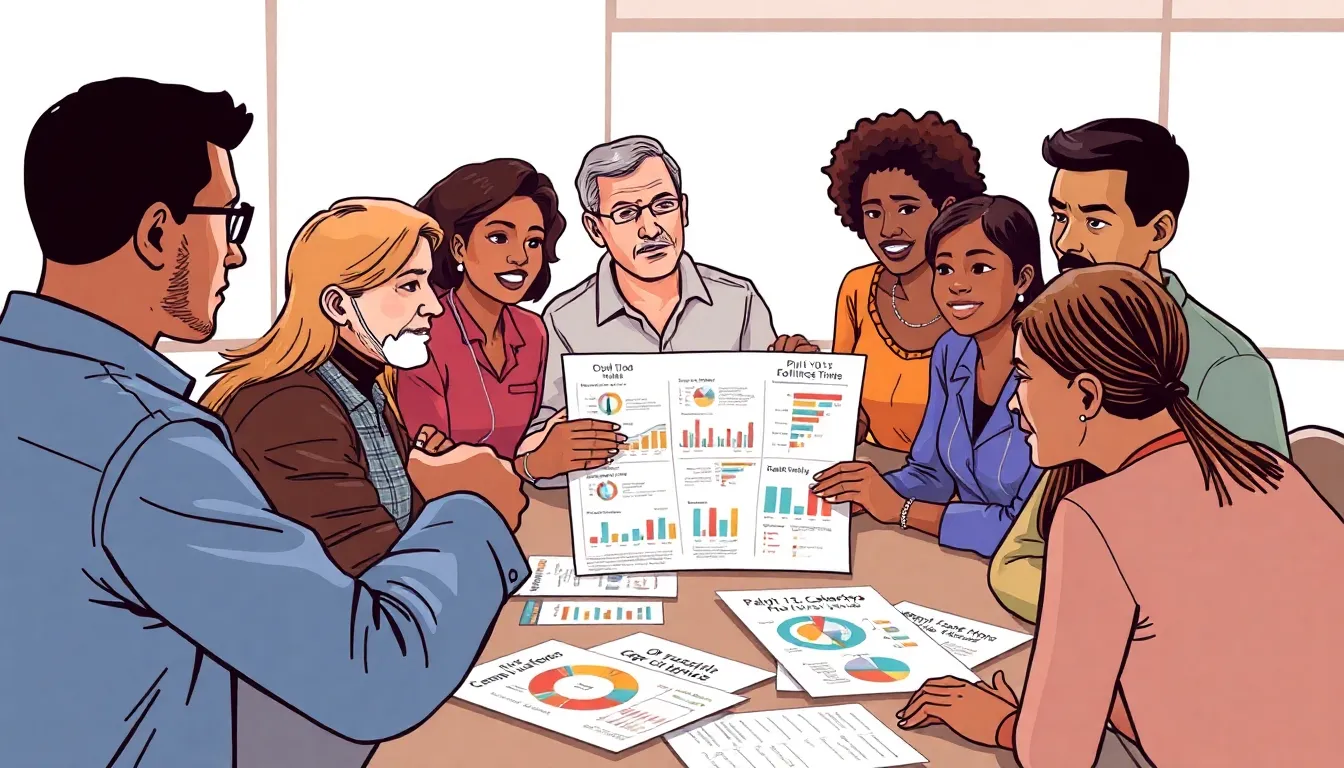In a world where political debates can feel as chaotic as a cat in a room full of laser pointers, understanding the political landscape is more crucial than ever. Every day, decisions made by leaders ripple through society, impacting everything from our wallets to our well-being. It’s a circus out there, and the clowns aren’t always wearing big shoes.
Table of Contents
ToggleOverview of the Political World
The political world comprises a dynamic environment shaped by complex interactions among various entities. Political leaders play crucial roles in decision-making processes that impact public policies and governance. Their actions can lead to significant changes in society, influencing areas like healthcare, education, and economic opportunities.
Governments operate at multiple levels, including local, state, and national. Each level has distinct responsibilities and powers. Diverse political systems, such as democracies, autocracies, and monarchies, exist globally. These systems impact citizen participation and the distribution of power.
Political parties serve as vital organizations that represent differing ideologies and interests. Each party engages in elections to gain control over government positions and implement its platform. Voter turnout remains a critical factor, determining the success of these parties and their policies.
International relations further complicate the political landscape. Diplomacy between countries shapes economic agreements, security alliances, and responses to global challenges. Multilateral organizations, such as the United Nations, facilitate cooperation among nations and address transnational issues.
The media’s role in the political world cannot be overstated. Coverage of political events, analysis of policies, and investigations into government actions keep citizens informed. Access to reliable information is essential for a healthy democracy, enabling citizens to make educated decisions.
Next, social movements and grassroots efforts highlight the influence of public opinion on political actions. Activism fosters change by mobilizing communities around specific issues, such as climate change, civil rights, or social justice. Understanding these movements helps individuals comprehend how citizens can drive political change.
Key Players in the Political World

Understanding the key players in the political world is essential for navigating its complexities. Governments, political parties, leaders, and influential figures all contribute to shaping public policies and societal norms.
Governments and Political Parties
Local, state, and national governments serve distinct functions in governance. Each level addresses issues relevant to its constituents, from local ordinances to national laws. Political parties organize around specific ideologies, offering frameworks for candidates and policies. Voter turnout often determines party success, as engaged citizens influence election outcomes. Multiparty systems promote a diversity of opinions, while single-party systems can limit political expression. Global variations exist, with democracies encouraging citizen participation and autocracies restricting it.
Influential Leaders and Figures
Leaders wield significant authority in the political landscape. Presidents, prime ministers, governors, and mayors make impactful decisions that shape public policy. Their ability to communicate effectively often influences public opinion and drives legislative agendas. Influential figures can also emerge from grassroots movements, advocating for change on critical issues. Furthermore, political strategists and advisors play crucial roles by shaping leaders’ approaches to various challenges. Noteworthy historical figures often leave lasting legacies through their policies and reforms.
Current Trends in the Political World
Current trends in the political world reveal significant shifts influenced by various factors. Populism continues to gain traction, reshaping political landscapes globally.
Rise of Populism
Populism thrives by capitalizing on public discontent with traditional political establishments. Leaders often position themselves as representatives of “the common people” against elite groups. This approach appeals to voters feeling marginalized by globalization and economic inequality. Notable examples include movements in Brazil, Hungary, and the United States, where populist leaders challenge established norms and policies. Voter engagement frequently increases in these contexts, as people rally around charismatic figures promising change. Consequently, populist strategies often dominate political discourse and influence election outcomes.
Impact of Social Media
Social media plays a pivotal role in modern political communication. Platforms like Twitter and Facebook offer immediate access to news and political developments. Users can express opinions and mobilize support quickly. Campaigns increasingly utilize targeted advertising to reach specific demographics. This strategy enhances voter engagement by personalizing political messages. Misinformation also spreads rapidly, complicating the political landscape. Citizens significantly rely on social media for information, creating challenges for traditional media outlets. As a result, political narratives frequently shift based on trends and viral content.
Challenges Facing the Political World
The political world faces numerous challenges that require immediate attention and action. Global conflicts contribute significantly to instability and uncertainty. Tensions among nations often escalate, resulting in diplomatic strains and military confrontations. Issues in regions such as the Middle East and Eastern Europe continue to threaten international peace. Miscommunication and misinformation exacerbate these conflicts, making resolution increasingly complex.
Economic disparities fuel political unrest. Inequality impacts various demographics, creating divisions within societies. Access to resources often differs drastically, leading to frustration and unrest among marginalized groups. Addressing these disparities requires comprehensive economic policies aimed at leveling the playing field. Leaders must prioritize equitable resource distribution to foster inclusivity and stability in political landscapes.
Future of the Political World
Emerging trends indicate a shift toward populism and greater political engagement among citizens. Leaders increasingly adopt populist rhetoric, positioning themselves as advocates for the marginalized against established elites. This phenomenon appears in countries like Brazil, Hungary, and the United States, where voter participation surges in response to populist movements.
Rapid technological advances also reshape communication within the political realm. Social media platforms facilitate instantaneous news access, allowing citizens to engage with political issues and movements. With platforms like Twitter and Facebook as tools, political campaigns adapt to catch the attention of a tech-savvy electorate.
Challenges abound as political landscapes evolve. Global conflicts present dilemmas, especially in volatile regions such as the Middle East and Eastern Europe. Tensions arise from miscommunication and misinformation, complicating diplomatic interactions and potential resolutions.
Economic disparities remain a critical issue requiring urgent attention. Leaders increasingly face pressure to devise comprehensive policies that address resource distribution equitably. Societal divisions can weaken stability, underscoring the importance of inclusive governance in the political arena.
Citizens’ activism and grassroots movements are gaining prominence, influencing public policies and decision-making. Movements concerning climate change and civil rights catalyze widespread public engagement, driving some leaders to adapt their platforms to reflect these urgent priorities. As public opinion shifts, politicians must be responsive to evolving societal demands.
New political players emerge, including influencers from various backgrounds who amplify marginalized voices. This diversification in representation can enrich political discourse, fostering more inclusive governance. Political parties that adapt to these changes are likely to thrive, ensuring that their ideologies resonate with contemporary voters.
Navigating the political world requires an understanding of its complexities and dynamics. As citizens engage more actively in the political process the influence of grassroots movements and social media continues to reshape political landscapes. The rise of populism reflects a growing desire for representation and change among the populace.
However challenges like global conflicts and economic disparities remain pressing issues that need urgent solutions. Addressing these concerns is vital for fostering stability and inclusivity in governance. The evolution of political parties to better reflect contemporary values will be crucial in meeting the demands of an increasingly engaged electorate. As the political environment evolves it becomes essential for individuals to stay informed and participate actively in shaping their societies.



